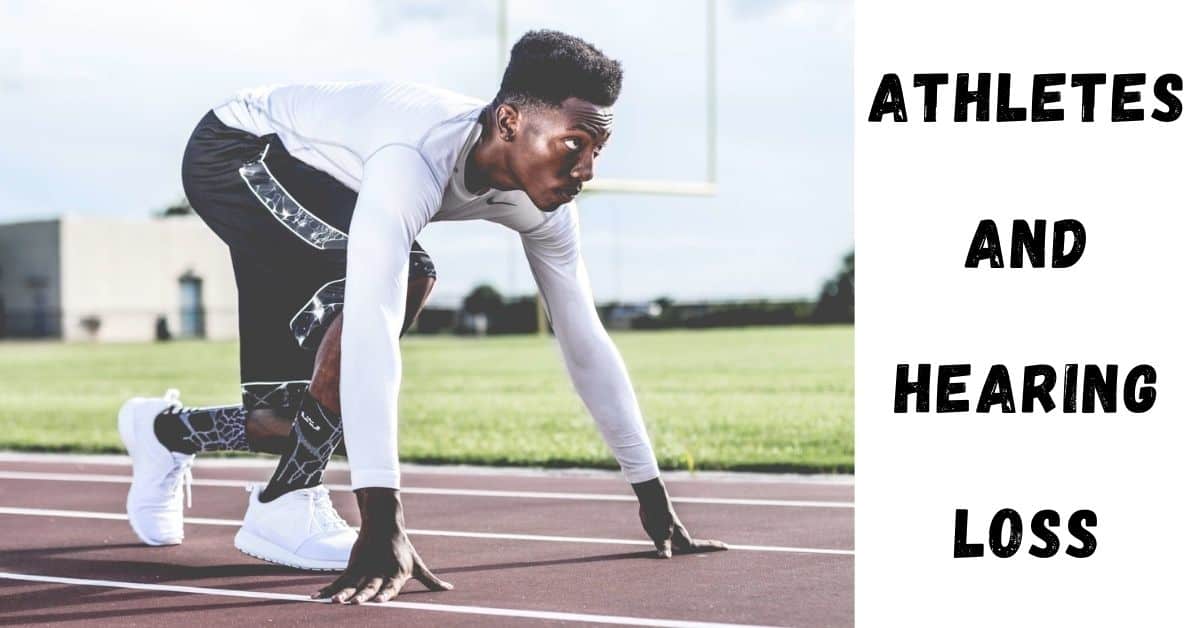
One of the most common misconceptions about hearing loss is that it results from aging and only impacts older adults. When in fact, 1 in 8 people – above the age of 12 – have some degree of hearing loss in one or both ears. Hearing loss is one of the most common chronic health conditions, affecting over 40 million people in the U.S. Impaired hearing has a range of symptoms that make it difficult to manage personal and professional responsibilities. Hearing loss strains communication, increases the risk of developing other medical conditions, leads to social withdrawal; taking a toll on overall health and well-being.
Athletes experience an increased risk of developing hearing loss due to exposure to loud noise and experience of personal injuries.
Understanding Hearing Loss
There are several factors that can contribute to impaired hearing including: existing medical conditions, environmental exposure to loud noise, genetic history, and injuries. The auditory system, which is how we absorb and process sound, involves the following:
- Outer Ear: the most visible part of the ear absorbs sound from the environment which travels down the ear canal and lands on the eardrum.
- Middle Ear: the vibration of the ear drum triggers the ossicles – three tiny bones that are connected – which help push the soundwaves further into the ear.
- Inner Ear: this activates the cochlea – filled with thousands of hair cells and fluid that work to help translate the soundwaves into electrical signals.
These signals travel through auditory pathways to the brain which processes and assigns meaning to the sound, allowing us to understand what we hear. Hearing loss is caused when any of these parts are damaged and are prevented from carrying out their essential function(s).
Athletes & Hearing Loss
There are two major ways that athletes experience an increased risk of developing hearing loss:
Exposure to Loud Noise
Sound is measured in units referred to as decibels (dB) and noise above 85dB can potentially harm hearing. One time or consistent exposure to loud noise can result in hearing loss. Athletes tend to be immersed in noisier environments and are absorbing higher levels of sound compared to others. One game in an arena or stadium can easily produce sound above 85dB and can ready nearly 120dB.
Loud noise can damage the hair cells in the inner ear. These hair cells, unlike other types of cells, do not regenerate. This means that when they lose sensitivity (from noise) or die, this damage is permanent; resulting in hearing loss that can only be treated.
Head Injuries
Another cause of hearing loss is head and/or neck injuries. Athletes face a high risk of physical injuries as a result of engaging in sports. According to the Centers for Disease Control and Prevention (CDC), there are nearly 3 million head injuries every year and 10% are caused by sports.
Head injuries involve extreme force to the head which can cause bruising, swelling, or bleeding depending on the severity. This can cause damage to any number of parts of the auditory system (bones, tissue, hair cells etc.) from the outer to inner ear as well as the auditory cortex in the brain.
If you are an athlete and/or regularly participate in contact sports, it is incredibly important to practice ways to protect your hearing.
Protect Your Hearing Health
There are several ways you can reduce your risk of hearing loss including the following:
- Wear protective gear: always wear a helmet of course in addition to earplugs, earmuffs, earbuds etc. that reduce the amount of sound you absorb.
- Noise cancelling headphones: reduce background noise, preventing you from increasing the volume on your headphones when navigating louder environments.
- Take listening breaks: which provide your ears/auditory system with the space to rest and recover from absorbing sound constantly.
- Get hearing tested regularly: hearing tests are noninvasive and painless. They measure your hearing ability in both ears and identify any hearing loss as well as the degree. This establishes your hearing needs and allows a hearing healthcare specialist to determine the most effective treatment options for you.
Implementing a few safety measures in your daily routine can reduce your risk of hearing loss and improve your hearing health! If you’ve been struggling to hear, we can help! Contact us today to learn more about hearing loss solutions.
